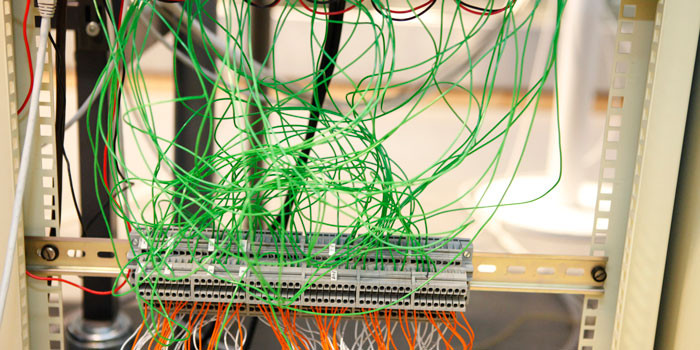Automatic control
The research done by the automatic control group is based on a firm knowledge of system theory, control engineering, simulation methods, optimisation methods, numerical algorithms, and so forth. Given the multidisciplinary nature of control, the research done by the group targets several application areas in particular. These include process control, micro- and nanosystems, wireless sensor networks and automation, power electronics and electrical machines, mechatronics, maintenance and fault diagnostics, system dynamics and cybernetics.
The weight of traditional process control now has a smaller role than it used to have. Control methods are developed more, for example, to study active vibration attenuation as well as how to control electrical manufacturing processes and human-machine systems.
Microassembly is the key area in the research of micro- and nanosystems, with the aim being to study different applications, e.g. those used in contemporary small-size actuator technologies. Wireless automation is an important topic of research in industrial processes, where the sensor and also in part the actuators are being replaced by wireless connections in the control unit. Identifying and diagnosing the faults arising in machines using wireless connections is an interesting research topic as well.
Vibration control of electrical machines involves using first principles modelling and estimating the model’s parameter, e.g. by using nature-inspired optimisation techniques, developing advanced control algorithms and conducting research on time-varying systems with time-periodic parameter variations.
The process of modelling and training people to operate, say, forest machines is a new application area in control engineering. It uses methods to model human control operations and methods to optimise their performance; the results can then be used, for instance, for training purposes. The application can also be used in the mining and metallurgy industry, where dynamic simulators can be developed to help the operators controlling the process.
System dynamics is an efficient modelling and simulation technology, where large complex processes can be modelled, simulated and analysed (what if analysis) using methods based on causality diagrams and topology with suitable parameters. For example, industrial maintenance problems or human consumer behaviour can be investigated using system dynamics.
Theoretical research on control engineering mainly focuses on two different areas: time-varying differential systems and neocybernetics. The former mainly studies systems with time-varying periodic parameters, while the latter provides a theory of self-adaptation for complex, interconnected, dynamic systems under the influence of the environment.
Group leaders: Kai Zenger and Professor Arto Visala.



